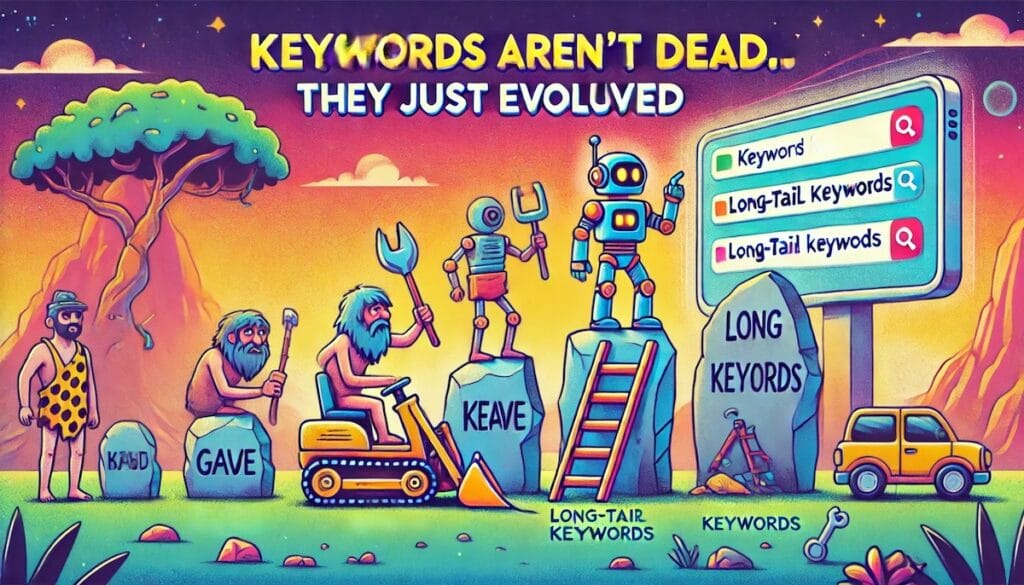Let’s face it—Google is like the world’s pickiest boss. It wants perfection, attention to detail, and a little bit of magic dust to make you stand out. But here’s the kicker: Google doesn’t exactly hand out cheat sheets for its algorithm. So, you’re left wondering, “What’s the secret sauce to ranking higher?”
Well, strap in because we’re spilling the tea (with a healthy dose of humor) on what Google wishes you knew about climbing the SERP ladder but won’t outright tell you.
1. Content is the Life of the Party, But Only if It’s Interesting
Google is the ultimate content connoisseur. It’s not just about pumping out blogs like a content machine; it’s about creating stuff people actually want to read. If your content doesn’t answer real questions or provide value, it’s like hosting a party with no snacks—everyone’s leaving early.
Here’s the insider tip: Google rewards content that is comprehensive, engaging, and original. Sprinkle in some trending keywords (naturally, not like glitter at a kids’ party) and make sure your headlines grab attention. Don’t be afraid to get creative and entertaining—like this blog, for instance.
2. User Experience (UX) is the VIP Section
Google’s goal? Keep users happy. If your website makes people want to throw their laptops out the window, you’re in trouble. Think of it this way: Google is watching how long users stick around on your site, and if they’re bouncing faster than a toddler on a sugar rush, that’s a problem.
Here’s what you need:
- Fast loading times—because nobody has the patience for spinning wheels.
- Mobile-friendliness—since over half of searches come from smartphones.
- Easy navigation—a site map that feels like GPS, not a maze.
Make your site as user-friendly as your favorite coffee shop—inviting, easy to navigate, and aesthetically pleasing.
3. Backlinks Are Google’s Love Language
If content is the life of the party, backlinks are the party invites that get everyone talking about you. When high-quality websites link to your content, it’s like getting a thumbs-up from the cool kids in school.
But beware: Google’s not impressed with shady tactics like buying links or using spammy directories. Build backlinks naturally by creating content people want to share—think infographics, guides, or even some spicy industry stats.
4. Keywords Aren’t Dead—They Just Evolved
Ah, keywords. Remember the days when stuffing your page with “best coffee shop” 50 times worked? Yeah, Google grew out of that phase. Keywords still matter, but it’s all about using them wisely. Google’s AI is like a mind-reader, so it understands intent more than repetition.
Focus on long-tail keywords (specific phrases like “best coffee shop for remote work in Sydney”) and use them naturally in your content. And don’t forget to optimize titles, meta descriptions, and headers—these little details pack a punch.
5. Fresh Content is Like a Freshly Brewed Espresso
Google loves fresh content. If your website hasn’t seen an update since the Jurassic era, don’t expect to rank well. Regularly update your blogs, add new resources, and keep your site’s information up to date.
Pro tip: Repurpose your best-performing content into new formats. Turn a blog into a video, an infographic, or a social media post to breathe new life into it.
6. Local SEO Is the Neighborhood Gossip Google Loves
If you’re a local business, optimizing for local SEO is non-negotiable. Think of it as putting up a flashy neon sign in your neighborhood. Claim your Google My Business profile, keep your NAP (name, address, phone number) consistent, and encourage reviews from happy customers.
Local keywords like “best pizza near me” or “reliable plumber in Melbourne” should be front and center on your site. The easier you make it for people to find you, the more Google will reward you.
7. Video Is Google’s Favorite New Toy
Video content is exploding, and Google is paying attention. Whether it’s YouTube or embedded videos on your site, video can boost engagement and keep visitors hanging around longer.
Create how-to videos, tutorials, or even quick explainer clips about your services. Make sure they’re optimized with keywords in the title and description—bonus points if they’re entertaining and informative.
8. Voice Search is the Future (And It Sounds Different)
With the rise of smart speakers and voice assistants, voice search is becoming a big deal. And guess what? People don’t type like they talk. Voice search queries are longer and more conversational.
Optimize your content to answer questions directly. Use natural language and include FAQs on your site to capture those voice search users. Think, “What time does the coffee shop open?” instead of “coffee shop opening hours.”
9. Analytics Are Your Crystal Ball—Use Them
If you’re not using Google Analytics and Search Console, you’re essentially flying blind. These tools give you the inside scoop on what’s working and what’s not.
Pay attention to:
- Bounce rate—are visitors leaving too quickly?
- Click-through rates—are your titles and meta descriptions doing their job?
- Organic traffic—how many people are finding you through search?
Data is your best friend—don’t ignore it.
10. Patience is a Virtue (And Google is Slow)
Here’s the truth: SEO is not a quick fix. It’s a marathon, not a sprint. If you’re expecting instant results, you’ll be disappointed. Building authority, trust, and rankings takes time. But with consistent effort, you’ll get there.
Final Thoughts
Google’s algorithm may be a mystery, but the fundamentals of SEO are clear: create great content, prioritize user experience, and stay consistent. While there’s no magic shortcut to the top of the rankings, these tips will set you on the right path.
So, roll up your sleeves, fix what needs fixing, and start climbing that SERP ladder. Who knows? You might just unlock Google’s secret ranking sauce after all.









